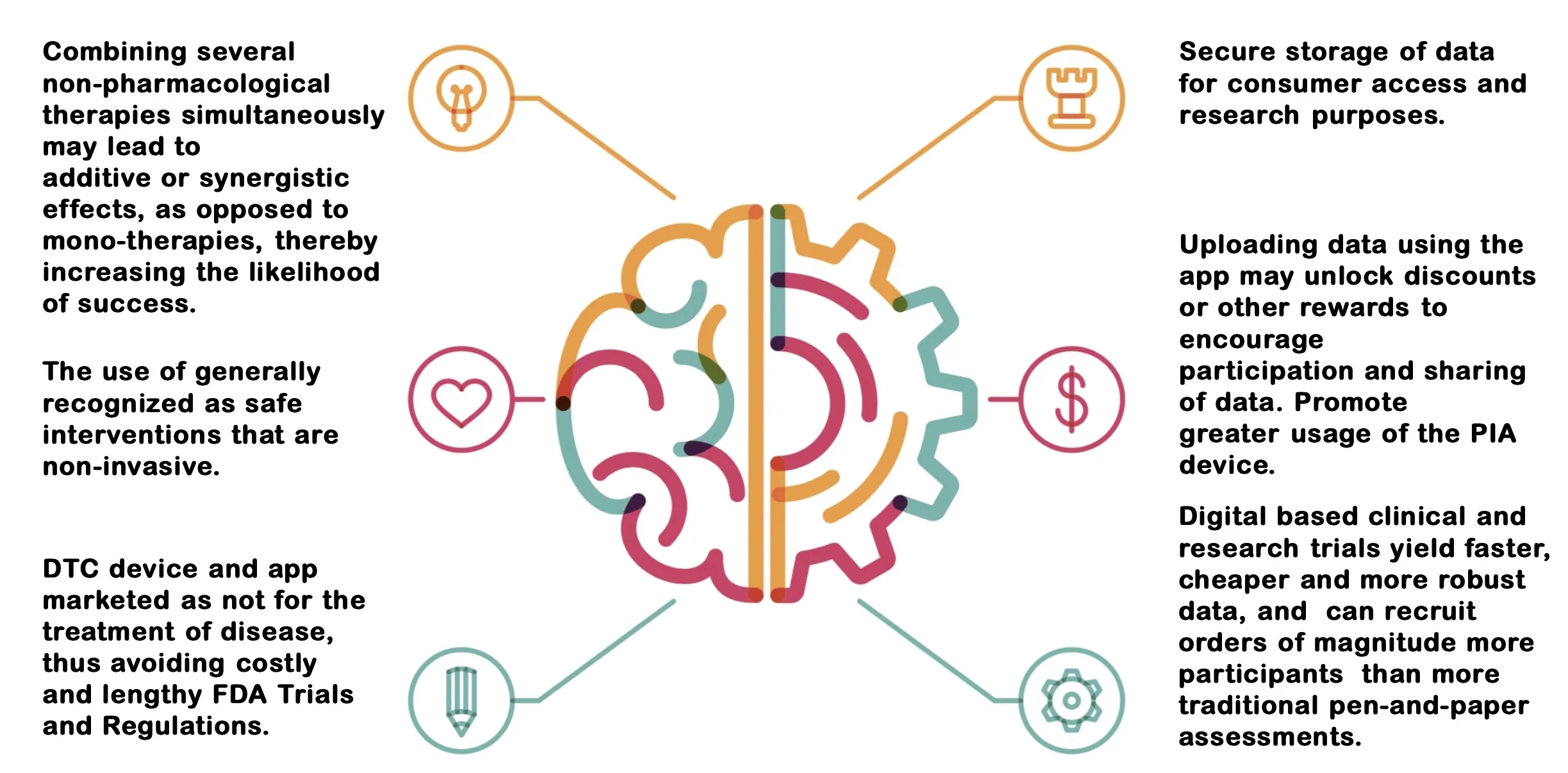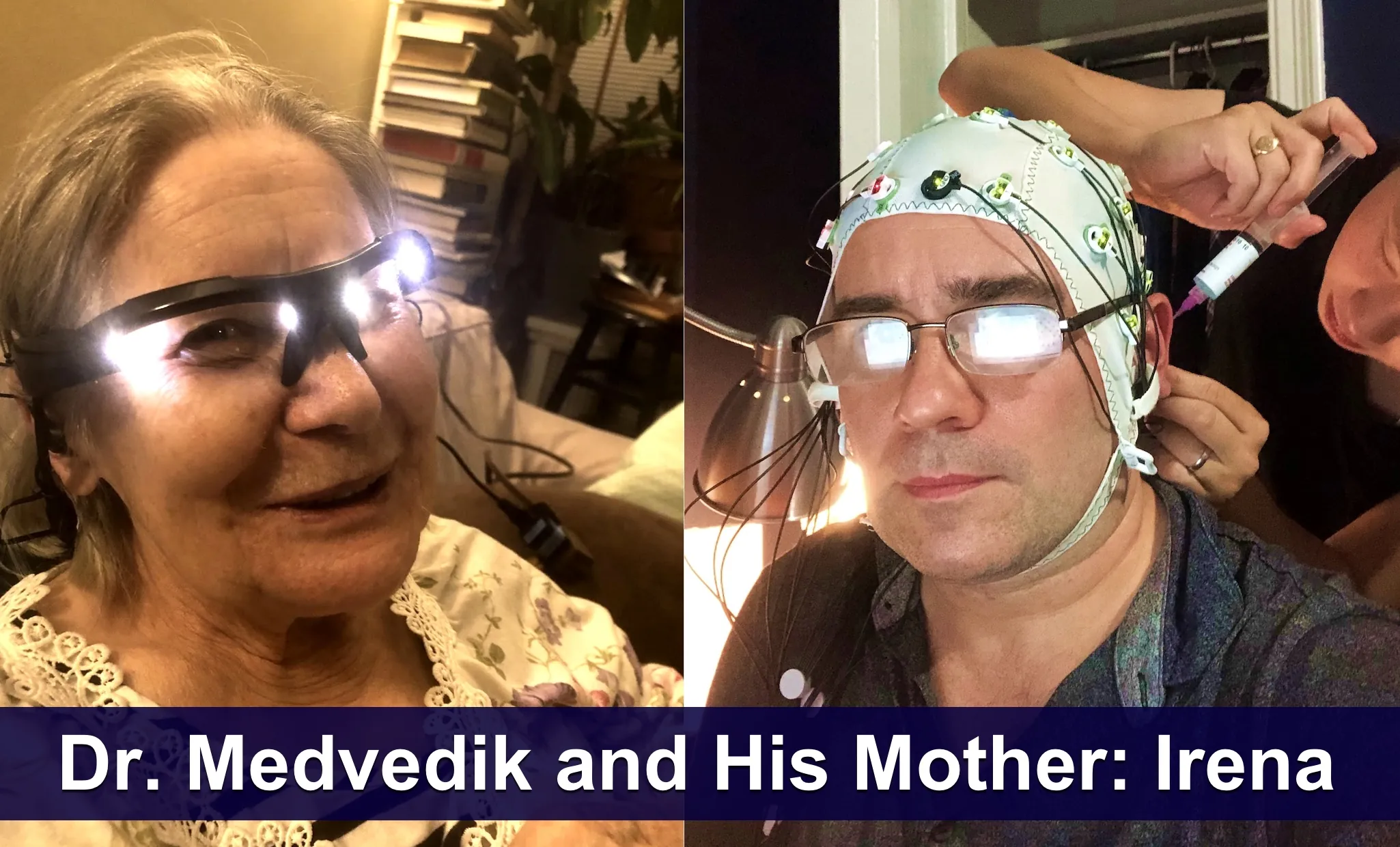
Mindset – Stopping Alzheimer’s With Light and Sound
Lifespan.io has a long history of crowdfunding aging research, and we are proud to announce that we have launched our own research program: The Mindset Project.
No solution to Alzheimer’s despite decades of research
The search for drugs to combat Alzheimer’s disease has been ongoing for decades and has cost billions of dollars, but almost nothing has even slightly worked. After years of drug research and failed clinical trials, vanishingly few approaches have been able to make a dent in this disease.
The good news is that there is evidence that strongly supports the development of non-pharmacological treatments for Alzheimer’s disease. There’s also evidence that multiple non-pharmacological interventions (NPIs) may work together and increase their effectiveness.
Unfortunately, despite the positive results seen in some NPI studies, there have only been a few small-scale clinical trials exploring them.
Here at Lifespan.io, we feel that this is not an acceptable situation. As we want to be part of the solution, we have launched the Mindset project.
Stopping Alzheimer’s with light and sound
The Mindset project is led by researcher and Lifespan.io Vice President, Dr. Oliver Medvedik. This promising NPI aims to target Alzheimer’s disease using a headset that stimulates the brain with light and sound in order to trigger neural entrainment.
Neural entrainment refers to the observation that brainwaves will naturally synchronize to the rhythm of periodic external stimuli, including flickering lights and sounds. Evidence suggests that triggering neural entrainment may reduce the loss of functional connectivity, combat brain atrophy, and improve cognitive function.
Thomson H. How flashing lights and pink noise might banish Alzheimer’s, improve memory and more. Nature. 2018;555(7694):20-22. doi:10.1038/d41586-018-02391-6
Murty DV, Manikandan K, Kumar WS, et al. Stimulus-induced gamma rhythms are weaker in human elderly with mild cognitive impairment and Alzheimer’s disease. Elife. 2021;10:e61666. Published 2021 Jun 8. doi:10.7554/eLife.61666
He Q, Colon-Motas KM, Pybus AF, et al. A feasibility trial of gamma sensory flicker for patients with prodromal Alzheimer’s disease. Alzheimers Dement (N Y). 2021;7(1):e12178. Published 2021 May 13. doi:10.1002/trc2.12178
Iaccarino HF, Singer AC, Martorell AJ, et al. Gamma frequency entrainment attenuates amyloid load and modifies microglia [published correction appears in Nature. 2018 Oct;562(7725):E1]. Nature. 2016;540(7632):230-235. doi:10.1038/nature20587
Martorell AJ, Paulson AL, Suk HJ, et al. Multi-sensory Gamma Stimulation Ameliorates Alzheimer’s-Associated Pathology and Improves Cognition. Cell. 2019;177(2):256-271.e22. doi:10.1016/j.cell.2019.02.014
McDermott B, Porter E, Hughes D, et al. Gamma Band Neural Stimulation in Humans and the Promise of a New Modality to Prevent and Treat Alzheimer’s Disease. J Alzheimers Dis. 2018;65(2):363-392. doi:10.3233/JAD-180391
Introducing the PIA MindSet
The headset we are developing will be called the PIA MindSet and will include multiple NPIs as part of its function. Because it’s a non-pharmacological intervention, developing it will be less costly than a typical FDA-approved clinical trial.
We want to make the headset easy to use, and participants will be able to submit data for analysis and feedback. The PIA MindSet could even prove popular with people interested in optimizing health or cognitive enhancement.
Ultimately, the goal is to produce an affordable headset that the majority of people will be able to access.

Developing a software suite to support the MindSet
No device would be complete without a solid analysis system. This is why we are developing an Individually Recorded, Enhanced Neurological Assessment (IRENA) software suite.
With online connectivity, IRENA will be able to receive data from users who opt in to contribute to its ongoing development. The data and results of cognitive assessments will be analyzed by IRENA and help to further improve the effectiveness of the PIA MindSet.
Here’s what IRENA will do:
- Determine the effectiveness of interventions on a scale beyond traditional paper-based questionnaires
- Assess the effectiveness of the headset and make refinements based on real-time data
- Confirm which users benefit the most from using the headset, such as those suffering from mild cognitive impairment versus more extreme

Next steps for the MindSet
We have already built a prototype system and have collected data showing effective and modifiable neural entrainment in humans. We will continue to test and develop the system and will publish more news about it as things progress.
Lastly, important research like this can only be accomplished with support from the community, so please consider donating monthly to support this important project. You can also support us by making a one off donation and in other ways at no cost to you, find out how you can help.
